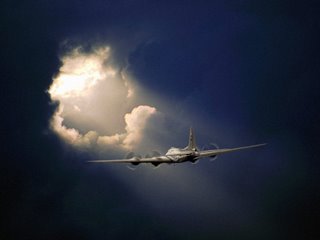'Close' only counts in horseshoes and nuclear war
 I am currently sitting on the eve of a five week trip to Europe (I leave Thursday) and the thought, and the pre-journey angst (Don’t worry, I love to travel, it’s just that there is so much dreary stuff to be seen to prior to departure. Once I am on my way it’ll all fall into place) are pumping me up at the moment. But, my imminent quitting of home and hearth also put me in mind of some earlier sojourns in my life.
I am currently sitting on the eve of a five week trip to Europe (I leave Thursday) and the thought, and the pre-journey angst (Don’t worry, I love to travel, it’s just that there is so much dreary stuff to be seen to prior to departure. Once I am on my way it’ll all fall into place) are pumping me up at the moment. But, my imminent quitting of home and hearth also put me in mind of some earlier sojourns in my life.For example, I took a trip to Europe during the tempestuous summer of 1968. It was an ugly period of history. Aside from the assassinations of Bobby Kennedy and Martin Luther King in the spring, there were the Paris riots, the tumultuous Chicago Democratic Convention, and later in the summer, the Russian invasion of Czechoslovakia.
I wasn’t directly involved with any of those happenings but, in one case, I was close. More about that later.
A thought that came to me a few years ago when I watched the movie Saving Private Ryan (Also called How the Americans Won World War Two Single-handedly, I believe) and I thought about all those GIs came ashore and pounded up the beach – the lucky ones, scores of them landed face down in the surf before they’d even really stepped off the landing craft – and dodged bullets, and shrapnel and strafing. Some of them made it, and lots of them didn’t. To me, as a safe onlooker with a tub of atrocious cinema popcorn in his lap, it all looked impossible. How did anyone survive?
Yet, they did. And those who survived were left with memories, and nightmares. Some of them are still around, with those memories and nightmares. Obviously they must look at something like Ryan through different glasses.
For them, do the horrors of war fade? Do veterans tell their children and grandchildren, cronies at the Legion or at AA meetings, in some cases, how ‘great’ it was? How awful it was? My grandfather spent four years in the trenches in World War One. He never discussed it. He still had nightmares decades later, however, and probably did until they closed the box on him.
Most of us have never had traumatizing experiences like that, so we don’t have the memories. We’ve all had personal problems and stressful times that may have been intense at that moment, they may have even resulted in residual problems, but none that I have had come close to watching your buddy bite the proverbial dust at your feet,
An older friend, a World War Two bomber pilot told me that once he and his wife were taking a flight to Europe. This would have been sometime in the 1970s. He said he was astonished to find he was feeling nervous about the impending flight.
“It was so strange,” he said. “For three years I piloted Lancaster Bombers and, while I was scared shitless a lot of the time, I still took it up and I never remember being apprehensive about the flying part of the job. But, here we were, flying to Europe on a 747 and I was nervous. I was afraid of crashing. Yet, when I was in the Air Force, there were guys trying to make us crash.”
Again I wondered, what could that be like? How can you be in a little cockpit, with an internal temperature of about minus-40 Fahrenheit, flack bursting all around you, ME 109s on your tail, and not go utterly berserk with shit-in-your-pants terror? Who were these guys that could do that? Were they cut from different bolts of cloth?
I have known men who hit the beaches at Normandy on June 6th, 1944. I have known men who were at Dieppe. How did they do that? None of them came back emotionally unscathed, needless to say, and lots died prematurely of alcoholism or the abuse of other nostrums or lifestyle choices taken up to make the ongoing pain go away. It wasn’t just a matter of coming home when it was over, if you hadn’t died there. Many men came home physically, but never made it back emotionally. They lost their souls over there, and never really found them again.
They came home with what was called “war nerves”. IN the First World War the same thing was called “Shellshock”. Today those ravagings of the emotional core are known as post-traumatic stress disorder, but it’s still the same old bullshit. People were exposed to horrors that were too great for the average person to bear with. So, somewhere along the way, something shuts down and the end result is a partial human-being.
As I said, my grandfather wouldn’t talk about the war. Neither would an uncle who was involved in the liberation of the Nazi death camps. As a child, I could not understand that. What they had done was the stuff of the movies. It was heroism and bravery, and all the nobler virtues – I thought. Now I understand perfectly why such discussions never came up. Such discussions are reserved for veterans who flew desks in the Big One, not for those that were there.
As I said, I have never been there. But, I have been relatively close. Or, I have seen the residuals. Some from long ago, some from more recent intervals of madness.
Way out in London’s East End, out past Dagenham, and getting on for Romford, you can still see the shells of factories as you pass by in the train. They don’t look like much. They are blackberry festooned cavities much like the residual structures you would see in a North American ghost town. They don’t look like the Heinkels overhead in 1940, raining death on thousands of terrified Londoners night after night in that dreadful autumn and winter when the UK stood alone against a massive tyranny after the treacherous, treasonous French had turned-turtle, and before the Yanks came in. I’ve seen that, but that didn’t even put me close.
I was in Vienna in that aforementioned summer of 1968 when the Russians decided it would be prudent of them to invade Czechoslovakia and bring to an abrupt and dreadful end that brief moment of hope known as the Prague Spring. The meatheaded Russkies came lumbering in with their tanks. I was struck by the fact one could see the Czechoslovak hills from Vienna. I was just off on the wings of the world stage. The skies were filled with jet fighter aircraft. ‘Ours’, even though Austria was a neutral.
A few days before the invasion I found, in conversation, that ‘close’ definitely doesn’t mean you have earned the cigar. Naiveté will not hold its own against experience. I was sitting in a railway compartment on a trip from Munich to Vienna (an Agatha Christie interlude on the Orient Express) when I fell into conversation with medical student, who was just returned from two years of study at McGill. He asked me, since tensions were high if I thought the Russians would invade Czechoslovakia. I fresh out of liberalized university 'polisci' sensibilities, suggested not. That they wouldn’t risk western censure. The world had moved on since Hungary in 1956. He laughed. “My friend,” he said, not disdainfully, “You do not know the Russians like I do.” I was soon to learn how shallow was my world experience.
Anyway, as I say, I was close then.
In the summer of 1969 I was in Montreal. This was at the height of FLQ activity. My wife and I were sleeping blissfully in our small hotel room on Sherbrooke, and at about 4 a.m. we heard a “whump!” We thought it might have been thunder. Then, we heard sirens. Then we heard more sirens. I looked down the street, but was unable to see anything of consequence. It wasn’t until the next morning, when we were out on the street trying to find a place to breakfast that we realized what the noise had been. A little over a block away a business premises was blown out into the street. It had been a bomb. Close again.
In April of 1981 we were on a coach tour of Ireland. As we entered the pretty little town of Bundoran, in County Sligo, within about three miles of the border with Ulster, I was struck by the fact that many of the high street shops were blackened shells. They had been burned out. The dirty little Irish internecine war had manifested on these very streets. Very close, except for the fact that had taken place the previous year, and the touring company that ran the coaches was hoping it would be a quieter year, despite the fact Bobby Sands was starving himself to death in the Maze Prison at just that time. And, despite the fact that Lord Louis Mountbatten had been blown to bits on Sligo Bay, just down the road, not two years earlier.
“Sure, and we’re hoping for a quieter year,” said the driver over a pint in the pub the evening we arrived. “The last coach through in the autumn was stoned on the high street.” We were evidently the guinea pigs. Close again, but we emerged quite unscathed, and the hotel proprietors were so delighted to see us. They had trade once again.
I have been close, but never right there. Blessedly. But I sit in awe of those who have.


7 Comments:
I hope you have a fantastic trip, Ian. You'll have to tell us all about it.
:)
AM
This comment has been removed by a blog administrator.
I'm glad I have you to remind me that our current state of affairs isn't the worst it's ever been. I too, stand in awe of those who have been in the midst of such things. Very well written, Ian. Thanks!
PS, what will I do without my what-did-Ian-write fix everyday? Hope you have a great time!
To all, I'll even tell you about the trip in process as I'll be taking a laptop with me, since I'll actually have some work to get done over there. Otherwise, I plan to keep my blog. So, thank you friends for all your good wishes.
Cheers,
Ian
Well...I hope you have a wonderful trip :-) I cannot wait to see pictures!
I am not crazy about flying at all myself - but I am flying to Bakersfield next week for work...
retro jordans
curry 6 shoes
jordan shoes
cheap jordans
yeezy shoes
jordan 12
nike vapormax
golden goose
nike air max 270
golden goose outlet
As I said, I have never been there. But, I have been relatively close. Or, I have seen the residuals. Some from long ago, some from more recent intervals of madness.
cheetah print comforter ,
colossal king comforter ,
Post a Comment
Subscribe to Post Comments [Atom]
<< Home